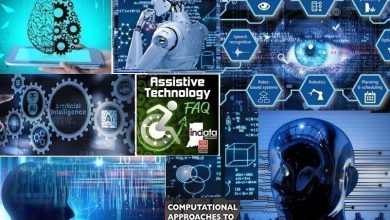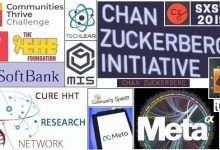
Can you tell me a bit about your background and your current role?
Thanks for having me for this interview, it’s a pleasure.
Professionally, I’m an experienced Human Resources Leader passionate about driving Strategic HR Transformation, Organizational Development, Corporate Learning, and Performance Management projects while working with diverse teams and inspired leadership. In my current role, I’m heading the Group Performance, Training & Talent Management vertical for my company with the accountability of our Middle Eastern and South Asian geographies. I am also the Founder of the Human Resources Group, a vibrant global community of HR Leaders, Specialists and Pros. Finally, I’m also engaged as Business Intelligence Board Member at Chief Learning Officer Media.
Personally, I’m blessed to have a wonderful family support system. I take pride in being Mama’s son and am fortunate to draw real-time leadership lessons from my father. In leisure, you would find me to be a creative wanderer who enjoys drifting amongst the imaginary, the perceived, and the unknown. When at home, I can be spotted fueling my creative appetite by composing poetry, penning short stories or sketching-à-loisir.
So, that’s a little bit about me. Feel free to follow me on Twitter @alikhursheeds, Email me at dr.alikhursheed@gmail.com or find me on LinkedIn to discover more about my professional bio and continue the conversation: https://www.linkedin.com/in/alikhursheed/
What according to you, are the benefits of HR automation projects?
Technology is best when it brings people together. The most appealing thing about HR automation projects for me is their ability to connect all dimensions of the business and the respective functional stakeholders.
A successfully implemented HR Automation project surely promises this human-to-human and human-to-technology connection, in addition to helping the organization reap benefits in terms of optimized processes, better utilization of resources, faster speed in service delivery and eventually, lesser operational costs.
The benefits of automating HR, either as a whole function or partially far outweigh any disadvantage that it may have. The ongoing successful HR automations around us are definitely helping to solidify the faith leaders and organizations have in the technology of today.
As Steve Jobs put it, “It’s not a faith in technology. It’s faith in people!”
How can we solidify the Link between HR Automation Planning and Implementation? Please share your thoughts.
That’s a powerful question. In most strategic projects like HR Automation or digital transformation, we often find a mismatch between effective planning and final execution. A key reason for this is that planning happens in isolated executive citadels and execution on the floor. This creates silos and the project stops belonging to all stakeholders.
To establish and strengthen the link between HR automation planning and eventual implementation, we need to be avoiding silos and making HR digital transformation every stakeholder’s business as an important success factor. It is also important to ensure these initiatives have the buy-in of relevant stakeholders by showcasing value and managing perception, especially where automation is involved.
We’re not just talking here about linking HR and technology, but also about solidifying their collective link to organizational culture, processes, and people. Planning and implementation must be designed to go hand-in-hand and all such projects should begin with a carefully curated business strategy that binds these aspects together before investments are made into any such initiative. This is necessary for success and will ensure a cohesive approach to driving the overall HR automation project.
Why do HR Automation Projects often Fail?
Let’s think about ourselves first. The biggest obstacle to transformation is the human mind which is hard-wired to repeat past actions. We’re biologically compelled to uphold the status quo even when it’s not the best option, a condition known as “repetition compulsion.” In practice, humans and habits go together like bread and butter. Even when those habits are detrimental, people have a hard time altering their behaviors.
The same applies to HR Automation projects, which in essence, are Change Management projects. We’re hard-wired to resist change and hence, resist them without weighing in if they’re useful to the organization or otherwise. Hence, it isn’t surprising why almost 70% of all such change initiatives fail.
Talking specifically about HR Automation, I believe most projects are not able to meet the expectations set for them either because they lack an actionable strategy, are launched prematurely, or face a lack in commitment to see started projects through. We need to visualize these problems as an Iceberg, where a part of it is visible like missing deadlines, going over-budget, or not being adopted by internal business functions. More important to see and find out in this iceberg is all those hidden problems that do not let these projects succeed, which can be as basic as an inherent failure to draw the right strategy or assess requirement for such HR automation or as calculated as failing to justify returns on any such investments.
So, we need to make sure that all stakeholders in the HR Automation projects stop being misguided by what form digital transformations take in an organization. In essence, it is not only linked to the integration of digital technology, it is also a cultural change that requires organizations to continually challenge the status quo, experiment with possibilities, and get comfortable with failure until success eventually shows up!
What trends will shape Human Resource departments over the next five years? What do you think?
Even personally, we see digital transformation seamlessly permeating throughout our daily lives, perhaps not in the way one may expect but certainly at an accelerated pace as compared to the past. In the future, this is surely going to become more integrated and business-critical.
Similarly, today’s HR workspace is faced with inevitable evolution and will continue to rapidly change, both in terms of functional flourish as well as accelerated automated transformations. Data and privacy will be another important area of focus for HR followed by initiatives centered on managing diversity, belonging and inclusion. I believe HR will no longer serve as a mere support function but become one of the most strategic partner to all kinds of businesses.
As per the recent KPMG research, almost all HR services are being automated either fully or partially, from employee data management all the way to HR analytics and predictive modelling. This seems all set to be followed by the advent of wide-spread artificial intelligence at the workplace in the very near future.
In conclusion, I believe this Stewart Brand quote sums it up quite neatly, “Once a new technology rolls over you, if you’re not part of the steamroller, you’re part of the road!”
People at work must constantly learn and adapt to new skills, technology and procedures to be competitive and stay relevant. It’s no longer a matter of choice. We have crossed over into the age of excellence.
Prepared by,
Stanislava Angelova
/Editor at DiTech Media/











